Metal detecting is an exciting hobby that can lead you to uncover valuable treasures, historical artifacts, or simply provide a fun outdoor activity. Whether you're coin shooting, relic hunting, or searching for gold nuggets, the key to success lies in choosing the right metal detector for your needs.
But with so many different types and brands on the market, how do you make the right choice?
Understanding Different Metal Detectors
When you start your journey to find the best metal detector, you'll encounter different types designed for various tasks.
The most common types include Very Low Frequency (VLF), Pulse Induction (PI), and Multi-Frequency detectors. VLF detectors are great for general use, detecting a range of metal objects with good target identification. PI detectors, on the other hand, are excellent for underwater metal detecting and can penetrate more ground, ignoring mineralization.
Multi-Frequency detectors offer the versatility of using both low and high frequencies to find different targets.
The Importance of Search Coils
The search coil is the part of the metal detector that actually senses the metal objects. Coils come in different sizes and shapes, with smaller coils being better for areas with lots of debris and larger coils covering more ground.
When choosing a metal detector, consider where you'll be searching. For example, smaller coils might be better for relic hunting in a trash-filled park, while larger coils could be more beneficial for beach searching.

Key Features to Look For
When you choose a metal detector, you'll want to look for basic features that suit your needs. Sensitivity controls allow you to find targets at different depths, while discrimination settings help you avoid unwanted items like bottle caps.
More advanced features might include target identification, which can differentiate between metals like iron, aluminum, silver, and gold, and manual ground balance to adjust for different ground conditions.
Considering Ground Conditions
Ground conditions play a significant role in metal detecting. Highly mineralized soil can affect the signal of most metal detectors. If you're planning to detect in areas with difficult ground conditions, look for a new metal detector with automatic or manual ground balance features.
This will help you find gold and other metals more effectively without constant false signals.
The Role of Frequency
Frequency is another crucial aspect to consider. Metal detectors with lower frequencies are typically better at detecting larger and more deeply buried objects, while higher frequencies are more sensitive to smaller items and gold nuggets.
If you're interested in finding a variety of items, a new hobby-grade metal detector with adjustable frequency might be the best choice.
Balancing Cost and Capability
Metal detectors cost can vary widely, from the cheapest models to high-end machines with more features. It's important to balance the price with the capabilities you need.
If you're just starting out, you might not need all the advanced features of the most metal detectors. However, if you're serious about your new hobby, investing in a metal detector with more ground-penetrating power and additional features could be worthwhile.

The Weight and Ease of Use
A metal detector should be comfortable to carry for extended periods. Lightweight and ergonomic designs can make a big difference in your detecting experience.
Additionally, consider the user interface and controls. A metal detector that is easy to understand and adjust can make your searching more enjoyable and less frustrating.
Metal Detecting Techniques for Different Terrains
When embarking on a metal detecting adventure, it's crucial to adapt your technique to the terrain you're exploring. For instance, a smaller coil is often preferred when navigating through rocky or highly mineralized soils.
The reduced diameter of the coil allows for better target separation and maneuverability between rocks or dense underbrush.
This precision can lead to the discovery of relics and treasures that a larger coil might miss due to its broader scanning area.
Conversely, when you're sweeping open beaches or vast fields, a larger coil can be your best ally. The increased coverage of a larger coil means you can scan more ground with each pass, enhancing your chances of uncovering something valuable.
This is particularly useful when searching for deep targets, as larger coils can penetrate deeper into the soil.
However, it's important to remember that a larger coil can also make the machine heavier, so consider your physical comfort during long sessions of metal detecting.
Advanced Features for Metal Detecting Enthusiasts
As you delve deeper into the world of metal detecting, you may find yourself craving more advanced features that can enhance your detecting capabilities. For example, some machines offer sophisticated discrimination settings that allow you to filter out unwanted targets, such as iron or pull tabs, saving you time and frustration.
This feature is invaluable when you're searching in areas with a high concentration of trash items.
Another advanced feature to consider is the ability to adjust the ground balance. This allows your machine to compensate for different types of soils and their mineral content.
By fine-tuning the ground balance, you can reduce false signals and improve the detector's sensitivity to deep targets.
Whether you're hunting for coins, jewelry, or historical artifacts, understanding and utilizing these advanced features can significantly improve your metal detecting results and make your treasure hunting expeditions more fruitful.

Waterproof and Underwater Options
If you're interested in underwater metal detecting, you'll need a waterproof metal detector capable of withstanding the water depth you plan to explore.
Some detectors are designed for shallow water, while others can go to significant depths. Make sure to read reviews and check the specifications to ensure the equipment meets your requirements.
Research and Read Reviews
Before making a purchase, it's essential to do your research and read reviews. Look for feedback from other users who have experience with different brands and models. This can provide valuable insights into the performance and reliability of the metal detectors you're considering.
Consider Your Long-Term Goals
Think about your long-term goals for metal detecting. Are you looking to simply enjoy a new hobby, or are you aiming to find valuable treasures?
Your goals will influence the type of metal detector you should choose, as different machines are better suited for different types of searching.
The Value of Accessories
Accessories can enhance your metal detecting experience. From headphones that allow you to hear signals more clearly to digging tools that make it easier to recover your finds, consider what additional equipment might be useful.
Some metal detectors come with accessory packages, which can be a cost-effective way to get everything you need.

Compatibility with Other Equipment
Ensure that the metal detector you choose is compatible with any additional equipment you may already own or plan to purchase.
This includes search coils, headphones, and carrying cases. Compatibility can extend the usefulness of your detector and prevent the need to buy entirely new gear.
Testing Before Buying
If possible, try to test different metal detectors before making a purchase. Many hobby shops will allow you to try out equipment, which can help you get a feel for the weight, balance, and ease of use.
Testing can also give you a better idea of how different detectors respond to various metals and ground conditions.
The Benefit of a Warranty
A warranty can provide peace of mind when investing in a metal detector. Look for products that come with a manufacturer's warranty to protect against defects or issues. A good warranty can save you money and hassle in the long run if your detector needs repairs or replacement.
Some Final Thoughts
Choosing the right metal detector involves understanding the different types available, considering key features, and balancing cost with capability. Remember to take into account ground conditions, frequency needs, and the importance of a comfortable, user-friendly design.
By doing thorough research and reading reviews, you can find a metal detector that will help you enjoy your new hobby and potentially uncover exciting and valuable treasures.

FAQ's
What's the difference between VLF and PI metal detectors?
VLF (Very Low Frequency) metal detectors are better for general use and discrimination between different metals. PI (Pulse Induction) detectors are better suited for mineralized environments and underwater metal detecting, as they can penetrate more ground and are less affected by mineralization.
How much should I expect to spend on a good metal detector?
The cost of metal detectors can range from under $100 for basic models to several thousand dollars for advanced machines. Beginners can find capable detectors for around $200-$300, while more serious enthusiasts may invest in models that cost $500-$1000 or more for additional features and performance.
Can metal detectors find all types of metal?
Yes, most metal detectors are capable of finding a variety of metals, including iron, aluminum, coins, jewelry, and gold. However, the ability to detect certain metals can depend on the detector's frequency, sensitivity, and ground conditions.

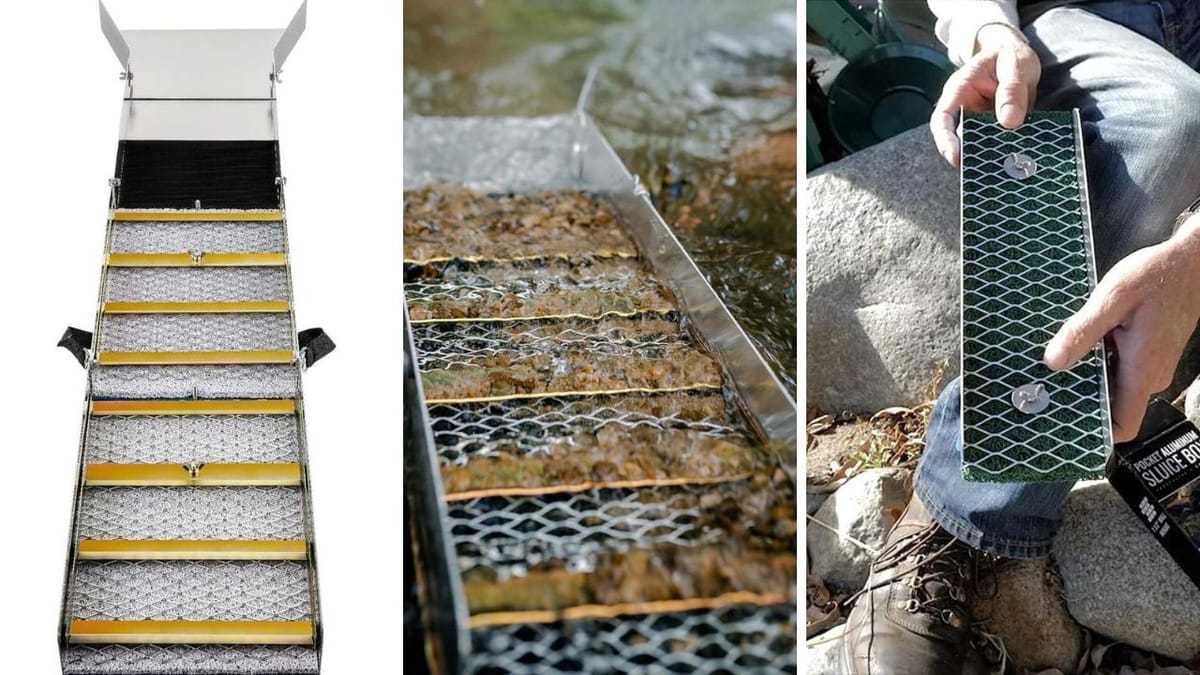






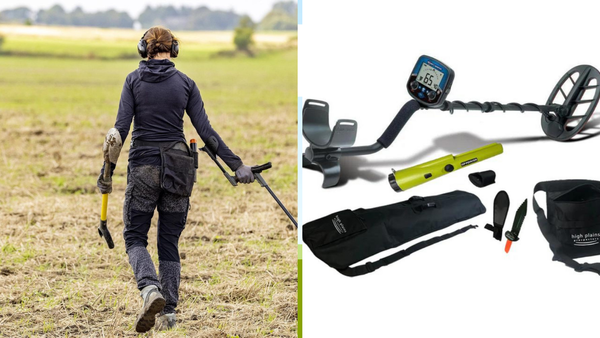
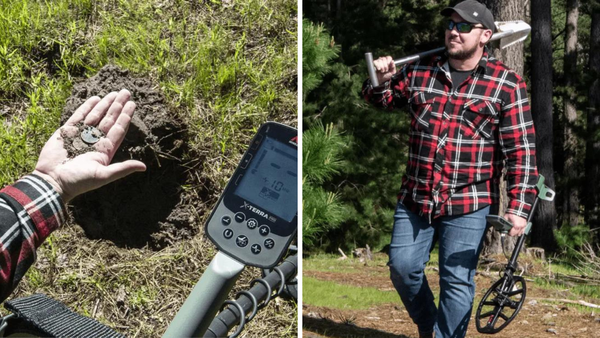

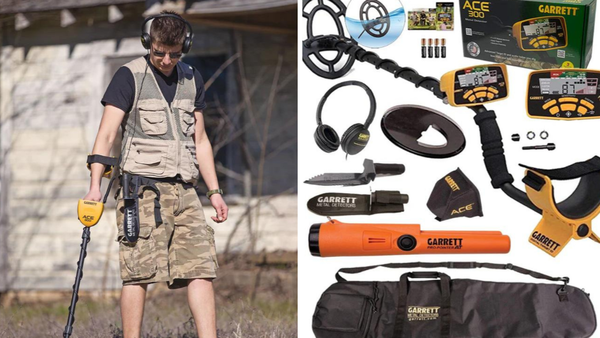
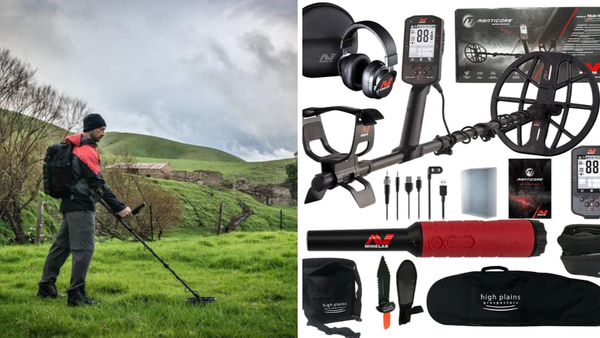
Member discussion